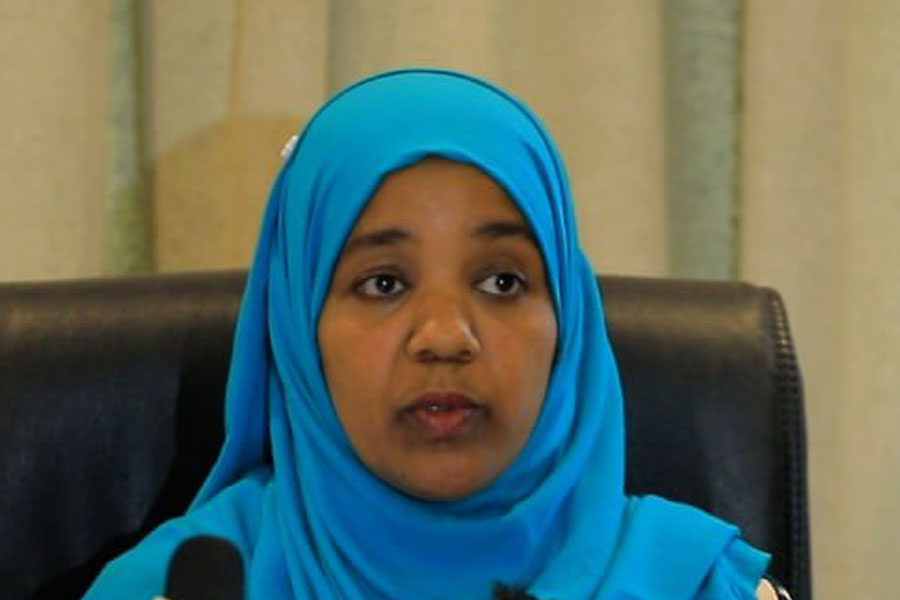
Radar | Mar 04,2023
On the Friday before last, I was at home when I heard loud music coming from the house next door. I am new to the neighbourhood, so I had reservations about going outside to inquire, but it was clearly a party.
As people have slowly come to realise that the outbreak might not get as bad as initially suspected, they have begun pouring outside. My neighbours took it one step further: they threw a party with loud music and rolled out the alcohol.
The need to want to disengage from all of this stress is understandable. This pandemic has turned into a collective traumatic experience for people across the world. While the emotional distress varies from person to person and country to country, the uncertainty about what lies ahead is almost universal. This has been a distressing moment, no matter our profession, the kind of business we own or even if we are going to school.
Everyone deals with this trauma differently, but holding get-togethers is the wrong way to go about it, especially when it is so early and it is not completely clear if Ethiopia has escaped the worst of the virus. This is naïve, irresponsible and endangers the safety of us all.
As people have slowly come to realise that the outbreak might not get as bad as initially suspected, they have begun pouring outside.
While awareness creation campaigns are ongoing, many people have begun defying them. No doubt, religious festivities such as Easter and Ramadan help people cope with the dire circumstances of a pandemic, but it is unfortunate that this is emboldening some to take measures into their own hands.
This is unfair, especially as we put enormous pressure on health professionals by failing to take preventive measures seriously.
Doctors and nurses are at the front of this battle, and the anxiety and pressure they feel is nothing compared to what most others feel. While they have been trained to deal with unusual experiences, a pandemic is a rarity that they could not have been fully prepared for.
Their battle is not just in the hospital. Some of the young health professionals are finding it prudent to find temporary homes so that they do not infect their elderly parents, spouses or children when they go home. These are realistic measures that they are taking, because they understand the severity of the unknown with this pandemic. This is a sacrifice they are making for our well-being.
In Italy and the United States, countries which have been heavily hit by COVID-19, there have also been reports of suicide among healthcare workers who are facing this virus head-on. This is the disaster we risk if we do not take measures seriously.
Ethiopia ranks among the countries with the lowest number of doctors per capita. With 22 for every million of our people, a similar outbreak here as has happened elsewhere would be devastating.
Our healthcare system has always been weak. This is now clear to everyone. For far too long we have neglected calls from health professionals for more funding and better equipment. We can only be thankful now that they have chosen to stand strong with us. The least we can do is show them our gratitude by taking their advice and staying home while they stay at the hospital for us.
The health practitioners are taking a stand between the community and the pandemic right now. Even though we have many grievances in the past, today we can marvel at their will. Ethiopia has still not seen the worst yet, and maybe it never will, but that will only happen if we are responsible and abide by the preventive measures.
It would be a tragic response to their effort and well-being if we cannot do the minimum and stay home. As a community, we need to find a way to heal once this is all over. The goal is not just to move on with business as usual. We must be mindful of all the problems that this pandemic is exposing, from the infrastructural to the personal. If we leave this moment without learning the necessary lessons to correct the flaws in our society, then we will not survive the next pandemic.
We must begin to reevaluate what we are prioritising as a nation and as individuals. Perhaps the worst of the pandemic might not be visited upon Ethiopia, but it is better to err on the side of caution and abide by the rules.
PUBLISHED ON
May 01,2020 [ VOL
21 , NO
1044]


Radar | Mar 04,2023

Sunday with Eden | Jul 17,2022

Fortune News | Jan 07,2023

Fortune News | Aug 19,2023

Verbatim | Oct 15,2022

Fortune News | Jun 07,2020

Fortune News | Aug 21,2021

Radar | May 04,2024

Featured | Sep 23,2023

Viewpoints | Jul 13,2020

Dec 22 , 2024 . By TIZITA SHEWAFERAW
Charged with transforming colossal state-owned enterprises into modern and competitiv...

Aug 18 , 2024 . By AKSAH ITALO
Although predictable Yonas Zerihun's job in the ride-hailing service is not immune to...

Jul 28 , 2024 . By TIZITA SHEWAFERAW
Unhabitual, perhaps too many, Samuel Gebreyohannes, 38, used to occasionally enjoy a couple of beers at breakfast. However, he recently swit...

Jul 13 , 2024 . By AKSAH ITALO
Investors who rely on tractors, trucks, and field vehicles for commuting, transporting commodities, and f...

Nov 1 , 2025
The National Bank of Ethiopia (NBE) issued a statement two weeks ago that appeared to...

Oct 25 , 2025
The regulatory machinery is on overdrive. In only two years, no fewer than 35 new pro...

Oct 18 , 2025
The political establishment, notably the ruling party and its top brass, has become p...

Oct 11 , 2025
Ladislas Farago, a roving Associated Press (AP) correspondent, arrived in Ethiopia in...